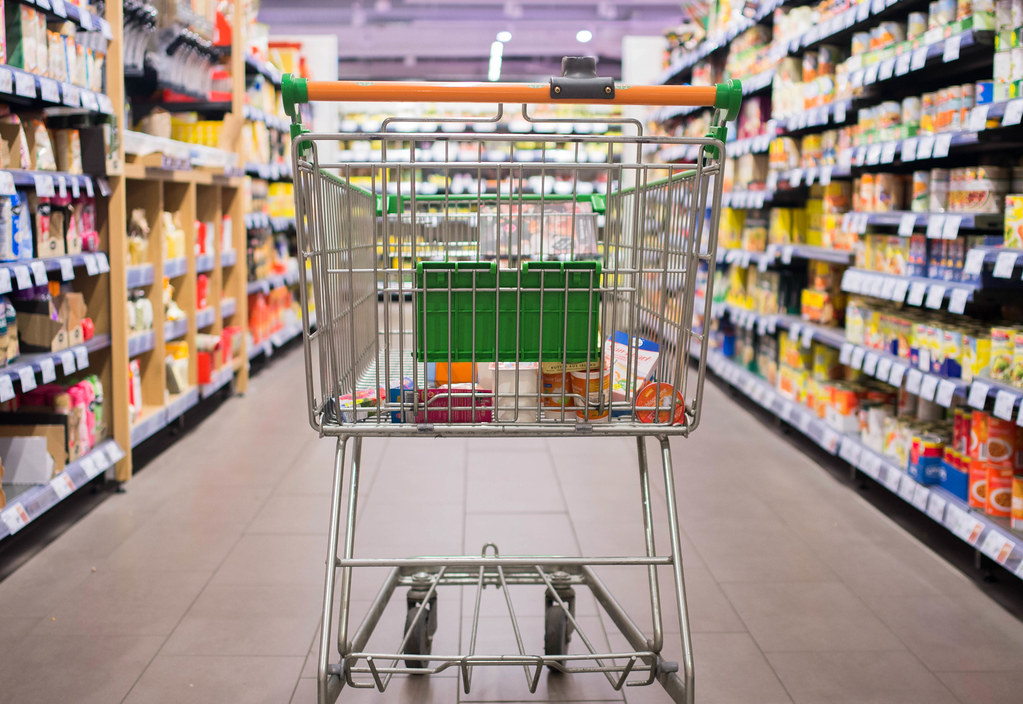Featured
Online groceries take off
The COVID-19 lockdown has given an unexpected boost to one of the most complex forms of ecommerce, boosting grocery apps in South Africa, writes ARTHUR GOLDSTUCK
Share
- Click to share on X (Opens in new window) X
- Click to share on Facebook (Opens in new window) Facebook
- Click to share on LinkedIn (Opens in new window) LinkedIn
- Click to email a link to a friend (Opens in new window) Email
- Click to share on Reddit (Opens in new window) Reddit
- Click to share on WhatsApp (Opens in new window) WhatsApp
- Click to share on Pinterest (Opens in new window) Pinterest
Who would have thought that videos of crowds in supermarkets would be a new form of horror movie?
In the age of coronavirus, such scenes send shivers up our spines for two reasons.
First, they represent both potential exposure to a deadly disease spread by random contact. If that isn’t chilling enough, the second reason is that the scenes tell us so much about our fellow human beings: how many disregard the global consensus that social distance is essential for beating the virus, and how many have such disregard for those around them.
Many people have no choice but to go to the supermarkets to buy essentials, but the crowds in supermarkets tells us we are seeing a “life-as-normal” attitude. This is as much the case in low-income areas as in affluent suburbs.
For the latter, there truly is no excuse: telephonic and online grocery ordering and delivery services have exploded into the national consciousness in recent weeks. Traditionally the most difficult form of ecommerce, due to having to maintain the “cold chain” from supermarket to home fridges, it is now suddenly the only form of ecommerce in South Africa.
As a result, we are seeing the biggest ever spike in both first-time online shopper numbers and the volume of online shopping by digital veterans. However, this forced revolution is also exposing the weaknesses of the existing players in this market – and opening opportunities to the agile entrepreneur.
Take Cindy Poluta, a veteran sports broadcaster. For several years, she has had the idea of starting a service to supply fruits and vegetables to homes and offices. She began having the app developed in November, and the service was ready to launch last month – just as lockdown began. Suddenly, she had to change her entire business model.
“I was going to mainly supply offices in the Sandton CBD,” she says. You could order your fruits and vegetable for home, and have it delivered to your office on a certain day. It would make life a lot easier so you wouldn’t have to go out to the shops. Just as you would order from Takealot and have it delivered to your office, so you would order fruit and veg from Tree Sweets.
“By the time the app was finished being developed, by the time I got the bank accounts, the Payfast account, everything going, it went live, and suddenly everybody went into lockdown. So, I had no option but to offer home delivery because of the costs involved of having an app and having a Shopify store, and so on. Those are quite expensive and they charge you in dollars. I just decided to try Linden and surrounds, because I live in Linden. People have loved it. I’m delivering daily, and I’m really grateful to everybody for their support.”
It helps that her husband is a wholesaler who supplies fruit and vegetables to supermarkets – and is her wholesale supplier, too. This allows her to supply her customers either more cheaply or as competitively as the major supermarkets.
“He custom-makes my orders for me, so he charges me what he would charge retailers, and I get a delivery daily to my house. At first, I was doing the deliveries myself in my car, which has been an adventure. Now we are partnering with Uber Eats, and you should find Tree Sweets on the Uber Eats app. It definitely is a service that I’d like to offer after the lockdown because I do think people have seen the value.”
Ironically, the big retailers have given entrepreneurs like Poluta a massive gap to fill by not being able to scale up sufficiently to meet the demand, and limiting their delivery areas to the surrounds of specific stores. Both Pick ‘n Pay and Woolworths have extensive online offerings, but now typically have a three-week wait for delivery slots. They have been unable to scale up their fulfilment capacity to meet short-term lockdown needs, and tend to rely on smaller players who pick up groceries in their stores to meet the demand.
Read more on the next page about the independent grocery delivery apps available.
Share
- Click to share on X (Opens in new window) X
- Click to share on Facebook (Opens in new window) Facebook
- Click to share on LinkedIn (Opens in new window) LinkedIn
- Click to email a link to a friend (Opens in new window) Email
- Click to share on Reddit (Opens in new window) Reddit
- Click to share on WhatsApp (Opens in new window) WhatsApp
- Click to share on Pinterest (Opens in new window) Pinterest
Pages: 1 2
| Thank you for Signing Up |


















